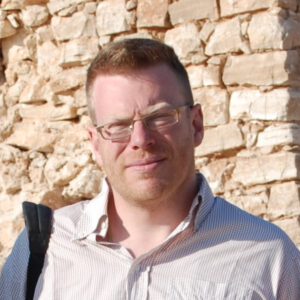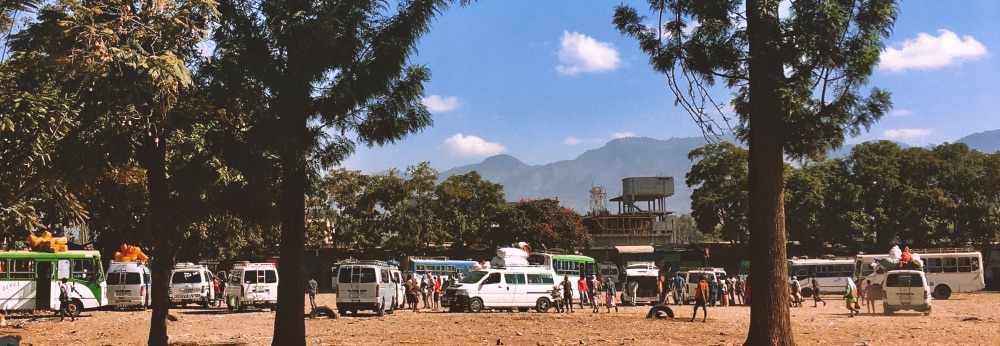
Markus Virgil Hoehne ist wissenschaftlicher Mitarbeiter am Institut für Ethnologie der Universität Leipzig. Er arbeitet seit 2001 zu Somalia. Nach dem Abschluss seiner Magisterarbeit an der Ludwig-Maximilians Universität in München zum Thema Strategien friedlicher Konfliktaustragung in Somalia besuchte er Nordwestsomalia zwischen Juli und September 2002 auf eigene Faust. Als Doktorand, angestellt am Max-Planck Institut für ethnologische Forschung, kehrte er im Herbst 2003 zurück und verbrachte die nächsten 15 Monate auf Feldforschung in Somaliland und Puntland. Während dieser Zeit lernte er Somali. Im Jahr 2011 schloss er seine Dissertation zum Thema Political Orientations and Repertoires of Identification: State and Identity Formation in Northern Somalia an der Martin-Luther Universität Halle-Wittenberg ab. Zwischen 2008 und 2018 besuchte er das Horn von Afrika jedes Jahr, um weitergehende Forschungen durchzuführen. Sein laufendes Habilitationsprojekt (Abschluss 2022) beschäftigt sich mit der Aufarbeitung der gewaltsamen Vergangenheit in Somalia und in Peru, mit einem speziellen Fokus auf forensische Anthropologie. Zudem leitete er (zusammen mit Tabea Scharrer) ein studentisches Forschungsprojekt zu „Somalis in Deutschland“. Neben seiner akademischen Tätigkeit führte er zweimal Gruppen von deutschsprachigen Touristen durch Somaliland und arbeitet seit 2005 als Somalia-Berater für NGOs und internationale Organisationen, ebenso wie als Experte in somalischen Asylfällen für Gerichte in Großbritannien, Deutschland und den USA. Er ist Autor und Herausgeber zahlreicher Publikationen zu Somalia und zum Horn von Afrika wie Somalia zwischen Krieg und Frieden (Hamburg 2002), Between Somaliland and Puntland: Marginalization, Militarization and Conflicting Political Visions (London 2015), Borders and Borderlands as Resources in the Horn of Africa (mit Dereje Feyissa, London 2010) und Milk and peace, drought and war: Somali culture, society and politics (mit Virginia Luling, London 2010).
Markus Virgil Hoehne is a lecturer in social anthropology at the University of Leipzig. He has been working on Somalia since 2001. After completing his master’s thesis at the Ludwig-Maximilians-Universität in Munich on Strategies of peaceful conflict resolution in Somalia, he visited Northwestern Somalia between July and September 2002. He returned as a doctoral student, employed at the Max Planck Institute for Social Anthropology, to conduct field research in Somaliland and Puntland between autumn 2003 and end of 2004. In this time he became fluent in colloquial Somali. In 2011 he completed his dissertation on Political Orientations and Identification Repertoires: State and Identity Formation in Northern Somalia at the Martin Luther University Halle-Wittenberg. Between 2008 and 2018, he visited the Horn of Africa regularly for further research. His current research concentrates on dealing with the violent past in Somalia and Peru, with a special focus on forensic anthropology. He also coordinated (together with Tabea Scharrer) a student research project on „Somalis in Germany“, which is coming to its conclusion in 2021. In addition to his academic work, he guided groups of tourists through Somaliland and works as advisor and expert for NGOs, international organizations and courts in Great Britain, Germany and the USA. He is the author and editor of numerous publications on Somalia and the Horn of Africa such as Somalia zwischen Krieg und Frieden (Hamburg 2002), Between Somaliland and Puntland: Marginalization, Militarization and Conflicting Political Visions (London 2015), Borders and Borderlands as Resources in the Horn of Africa (with Dereje Feyissa, London 2010) and Milk and peace, drought and war: Somali culture, society and politics (with Virginia Luling, London 2010).
